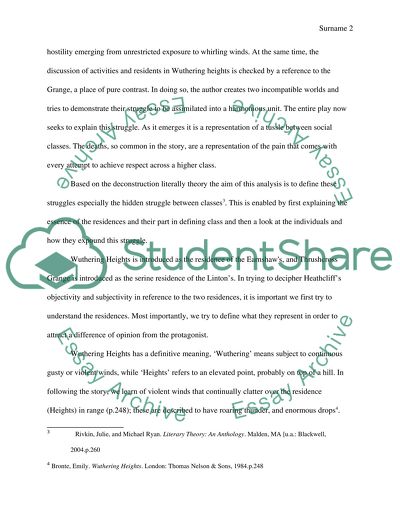Cite this document
(“Wuthering Heights Essay Example | Topics and Well Written Essays - 3500 words”, n.d.)
Retrieved from https://studentshare.org/literature/1492794-wuthering-heights
Retrieved from https://studentshare.org/literature/1492794-wuthering-heights
(Wuthering Heights Essay Example | Topics and Well Written Essays - 3500 Words)
https://studentshare.org/literature/1492794-wuthering-heights.
https://studentshare.org/literature/1492794-wuthering-heights.
“Wuthering Heights Essay Example | Topics and Well Written Essays - 3500 Words”, n.d. https://studentshare.org/literature/1492794-wuthering-heights.


